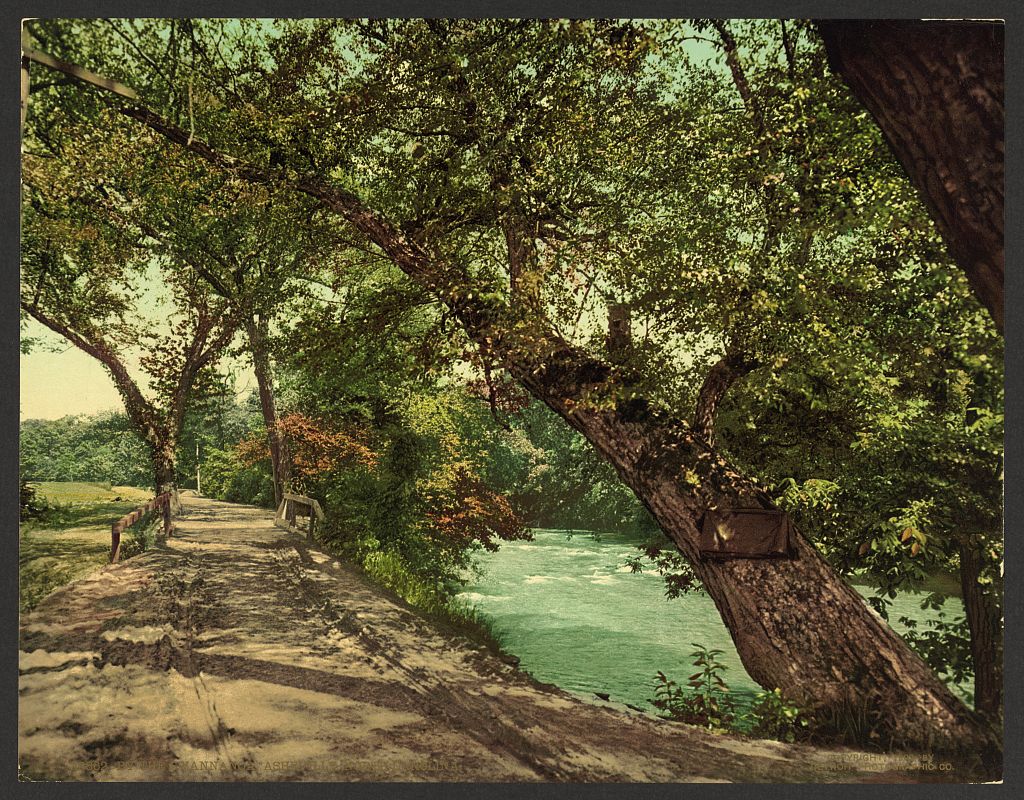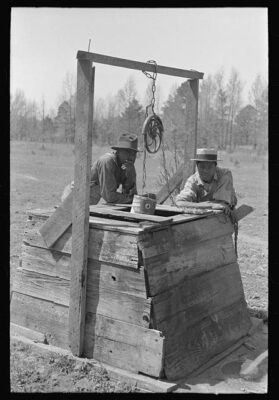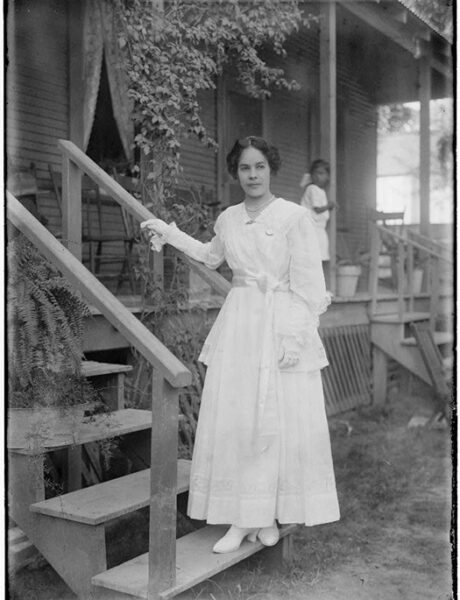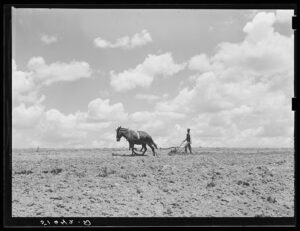Mr. Martin needs no detailed Southern Legitimacy Statement, he has graced our website before today but I do want to include this: “I am a Southerner by birth and tradition. I was born in Birmingham, Alabama in 1933. I send these pieces to you for your considerations. I thank you in advance for your time and consideration. with a handshake in thought, Herbert Woodward Martin.”
The Young White Boy’s Question.
A Small reminder
the grey brown moss
wafts on Southern poplars
like disembodied souls
hanging as a lesson of a
particular death suffered.
The sun brings temporary
relief of an occurrence
that took place long ago
on the cusp of a night
somewhere, a distant memory.
A young white boy inquires:
Why don’t you guys get on with living?
I try and give him the best black answer I can:
We are too busy mourning death in these trees.
–Herbert Woodward Martin
Watching Ken Burn’s The Roosevelt’s: An Intimate Portrait,
ignites a memory of a time when we listened to FDR’s voice
before the evening’s fire as his words burned confidence in
my parents and the nation. I was still very young when
WW II occurred and had to help hang crazy quilts over the
windows, gave each pane a black eye, as we huddled against
a practice air raid dark. Not a spark was to be seen from the sky.
The wardens of daylight patrolled the neighborhood to make
sure every citizen followed orders. When daylight arrived,
I used my fruitful ingenuity to scourer the neighborhood roads
and pathways, even the dilapidated plots, searching for rusty nails,
abandoned metal: the heavier, the more profitable. I was doing
my small part in the war effort and getting paid by a truck driver
we called The Iron Man, who paid 25 cents to a $1.00 a pound
for a bucket of scrap to make bombs with. When the conflict ended
and everyone rejoiced, the back alleys and sided streets were immaculate.
Four black boys had scraped the area spotless. Noting to scrape a leg
or trip a foot. The movies which we were allowed to attend with our largess
afforded us a chance to see the weekly Movietone News Reels and the
progress our soldiers had made in the effort. Our spirits were buoyed up
by victory, and then we saw the Concentration’s refugees and our emotions
were dashed upon rocks of despair. I would especially remember being
troubled by the images of those surviving Jews: naked as a Jay Bird,
my mother would say and nothing but skin and bones my grandmother
would say: umph, umph, umph! What intestinal fortitude, I would later
come to know, as they demonstrated an act of walking with a careful air of grace.
–Herbert Woodward Martin
Depression Child
“You are a child of The Depression.”
An observation made by Ron Primeau
Cousin Lou taught: “save everything.”
My wife calls it the rat pack effluvium.
Still we saved everything:
Unburned bacon grease
Small pieces of soap,
sugar bags turned inside out,
our Sunday shoes
consigned to week day wear
when we could afford new ones,
newspaper used to layer
the worn-out soles.
The smallest thing was wealth:
paper rolled into logs,
swatches of cloth sealed
the drafts in windows,
replaced worn portions of quilts.
Our family history kept us warm,
Jelly lids were nailed against rat holes,
while the peels from fruit made jelly.
Everything had a purpose.
The Depression made us aware of :
what we did not possess,
what we never possessed:
a job for a lifetime.
Good or bad Lena Beitler always
wanted to know: did it pay?
We never thought about
what we could do with our lives.
Anger was a shaken fist,
the bottom of which was
supposed to be Hoover’s ass.
Hard as a dime Uncle Ad. said.
He smiled thinking if we held
those tight fists long enough
Hoover would become constipated.
Communal witchcraft.
Whether it worked or not,
I was too young to know.
Still, the country prevailed
and elected a successor
who calmly advised:
We have nothing to fear
but fear itself.
We believed him
and went to war.
–Herbert Woodward Martin
Doughnuts
Dry as dust
munched daily.
scrambled eggs
boiled like instant feelings.
teeth unnaturally chewing
a known problem.
Your lips are
a confection
of stoic sweets
on the tongue.
–Herbert Woodward Martin
Mississippi Observation
The moss hanging from Mississippi trees
wafts in the greening evening breeze
without purpose or soul resembling knees.
We are bent on some purpose beyond sleeze
or prayer, to know what ancestor hangs here,
because whoever they were, otherwise square,
Time elicits circumstance and the equally quiet,
moving steadily, as does memory or debt
like the carefully grown anonymous fruit
hangs from branches, the vague remnants of hoots
of a disturbed Owl, disconnected from family,
and mourning its distinctive and terrible loss,
knowing that whatever it does, it will not see
a human being resembling anything but dross.
–Herbert Woodward Martin







